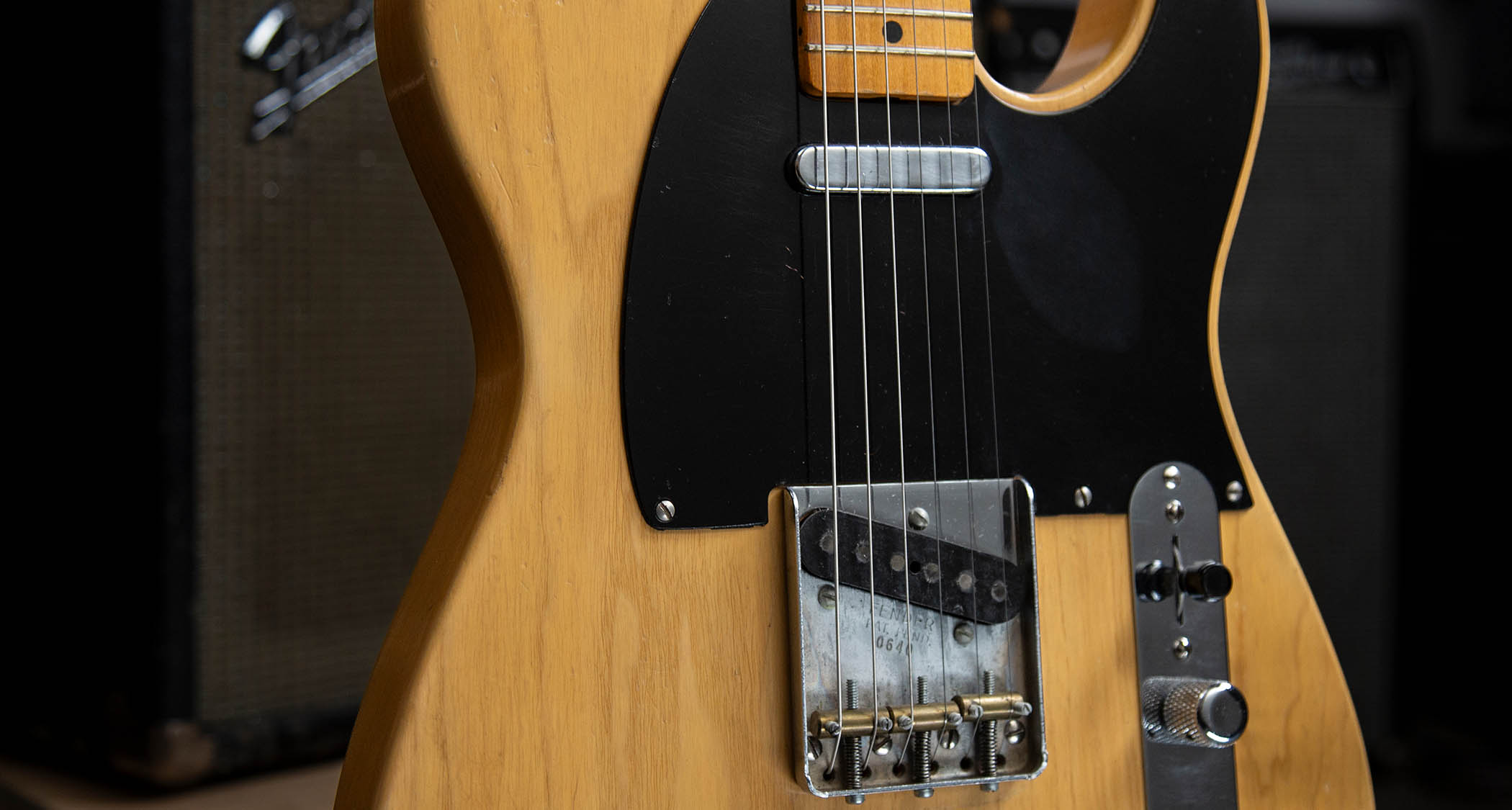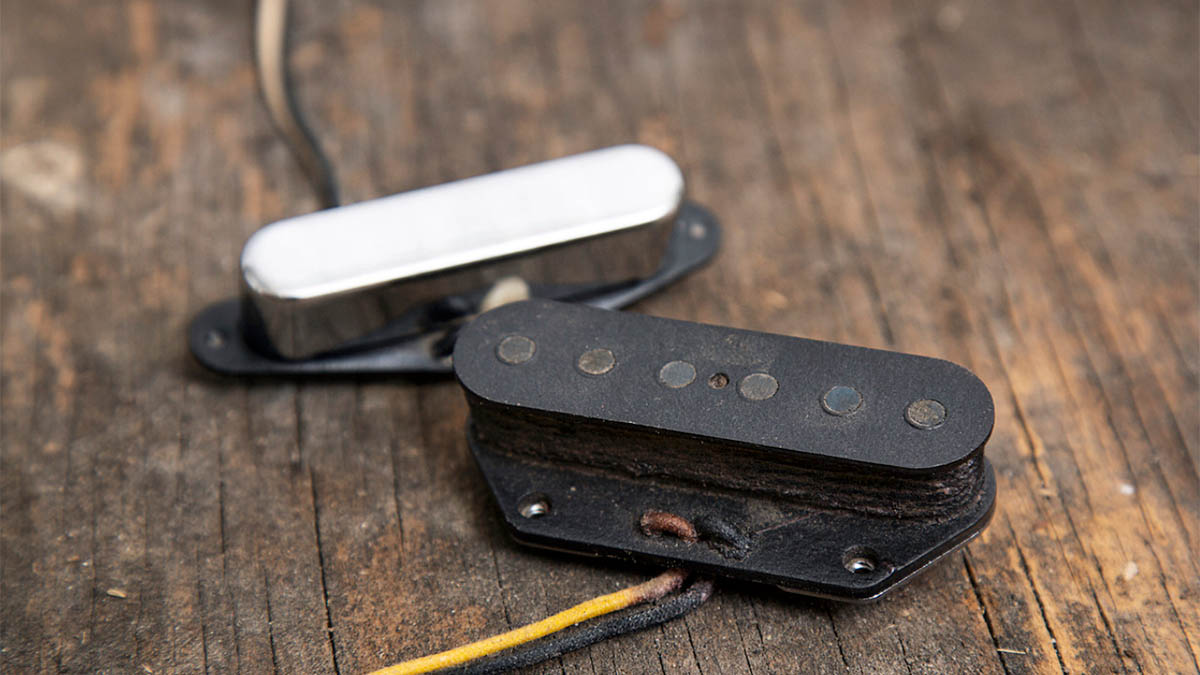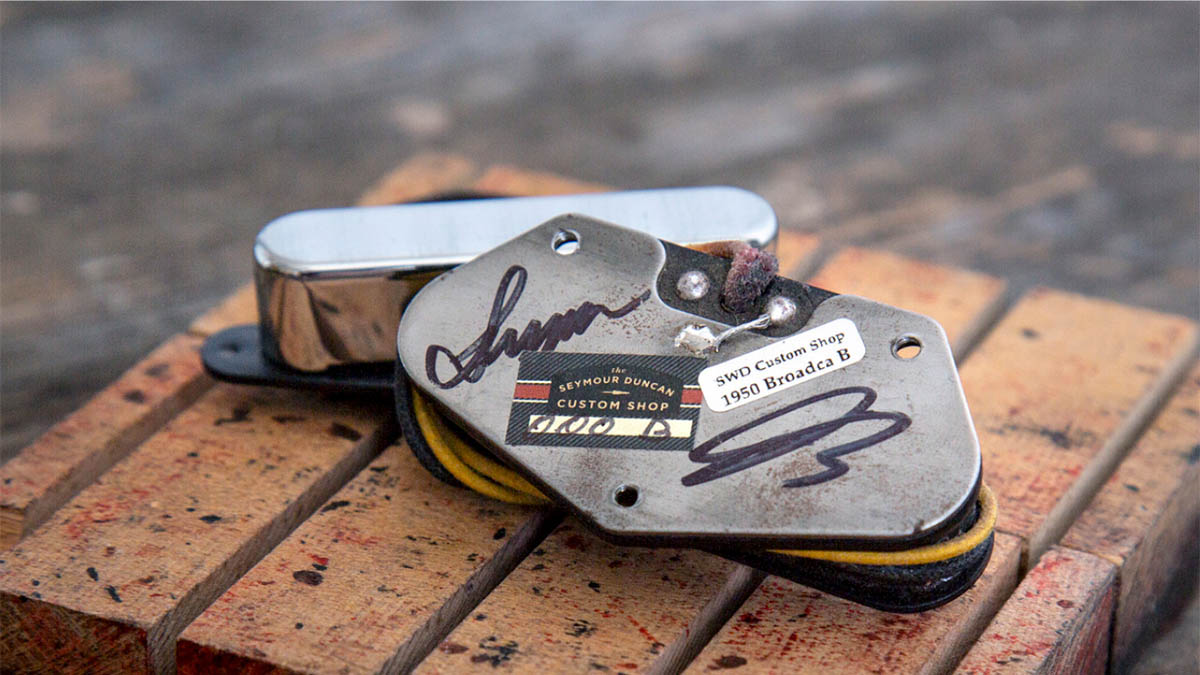“These are very touch-sensitive and very dynamic”: Give your Tele a tone makeover fit for a blues superstar with the Seymour Duncan Joe Bonamassa 1950 Broadcaster pickup set
Demoing these Tele-friendly single-coils on a Squier is a power move from Bonamassa as he compares and contrasts with a vintage original from Nerdville

Seymour Duncan and Joe Bonamassa’s collaboration has expanded with the launch of his signature Broadcaster pickups, a pair of single-coils to take the Telecaster in your life back to the 1950 and the birth of the mass-produced electric.
The Joe Bonamassa 1950 Broadcaster Collection is modelled on the original pickups from the blues guitar superstar’s vintage original, presenting players – and their guitars – with a time machine tone boost.
Having already developed the Bonnie Stratocaster pickup set, “The Blonde Dot” 1960 PAF humbucker set, the Amos humbucker, Bonamassa and Seymour Duncan has taken it back to the start, to 1950, and a huge evolutionary leap for the guitar.
“The Broadcaster will be turning 75 years old next year and it is just an incredible invention of electric guitar,” he says. “We’re still using it. It’s the same as it’s been for 75 years.”

When he says “we” he really means we. The Broadcaster might have had a name change after clashing with a Gretsch drum set, rebranding as the Telecaster and soon establishing itself as guitar’s most indefatigable workhorse, but the design is still largely unchanged. It’s an archetype, a design that’s sired a million copycats and yet has never been bettered on its own terms.
This copyright row meant that real Broadcasters are thin on the ground.
Fender only managed to ship some 250 of them off the production line before they had to pivot. Initially they improvised, snipping the “Broadcaster” decal off the headstock and selling the guitars anyway, the so-called Nocasters – of which Bonamassa is a huge fan of, even if, or especially because his Nocaster fights back. He has gone as far as to say his '51 Nocaster his is favourite guitar, and that is saying something because has a lot of them.
Want all the hottest music and gear news, reviews, deals, features and more, direct to your inbox? Sign up here.
But finding a real, vintage Broadcaster in the wild? There’s no chance. Souping up your Tele with these might be the next best thing
And as a measure of Bonamassa’s confidence in these 21st-century replica pickups, he demos them in a budget-friendly Squier Telecaster, proving that you can make a cheap electric guitar sound like a great guitar with a relatively cost-effective upgrade (and, let’s be honest, a healthy degree of talent).

Seymour Duncan has used an Alnico II magnet for the neck pickup and Alnico IV at the bridge. In keeping with the spirit of the original Broadcaster’s abandoned release, the first 250 of these will have their steel baseplates signed by Seymour Duncan and Bonamassa, with said baseplates aged to match the look of the originals. They will also be numbered.
Once they are sold out, the Joe Bonamassa 1950 Broadcaster Collection will be built to order by the custom shop and are priced $160 a piece or $310 for a set. For more details, head over to Seymour Duncan.
Jonathan Horsley has been writing about guitars and guitar culture since 2005, playing them since 1990, and regularly contributes to MusicRadar, Total Guitar and Guitar World. He uses Jazz III nylon picks, 10s during the week, 9s at the weekend, and shamefully still struggles with rhythm figure one of Van Halen’s Panama.

